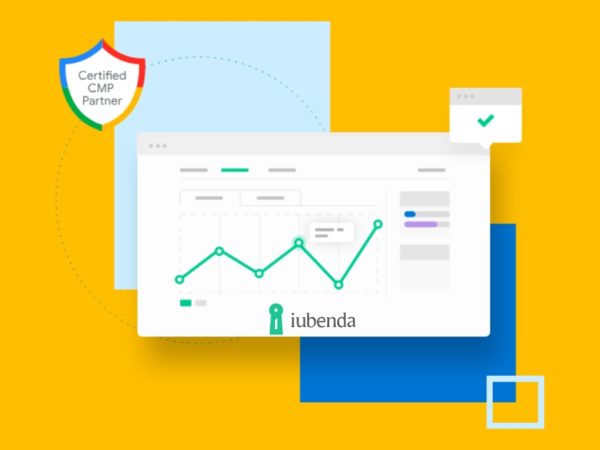Check out the anti-spyware tools to keep the snooping eyes out and sensitive information safe.
Someone’s looking at your online activity right now!
Well, maybe I have written the first line to catch your attention. Regardless, it’s true for many of us.
According to the survey by America Online and the National Cyber-Security Alliance, over 80% of internet users had spyware on their machines in 2004. Besides, 95% of such users said they never installed those programs.
Agreed, the data is nearly two decades old, but that makes it all the more dangerous. These invasive tools weren’t as sophisticated back then, and cybercrimes have only skyrocketed.
What is Spyware?
While a virus is easier to detect, spyware is more subtle. It sits quietly on your device, capturing all the vital details, and sends them to the bad actor.
It often gets installed without user consent and is concealed with other files.
However, some reveal their presence causing sudden slowdowns or annoying pop-ups.
A few are mild in that they target the user with adverts based on unauthorized access to personal information.
However, others can be severe and wait to steal sensitive details like credit card numbers, passwords, etc., using keyloggers and screen recorders. Besides, it can also poison the DNS to load fake versions of websites to get something like your online banking credentials.
And while some may still ridicule the gravity of the situation, I’ve got a colleague right here at Geekflare with a first-hand spyware experience that resulted in emptied bank accounts at midnight while in a foreign country.
Scary enough? So, we have this list of…
Anti Spyware Tools
Anti-Spyware generally comes with a package commonly known as antivirus. Albeit, you can also avail of one-time Spyware removal services, we’ll focus on the downloadable programs.
And though there are free versions of such software, I strongly recommend paying.
As in history, a reputed name such as Avast was found guilty of selling user data to big techs like Google, Microsoft, etc.
An apology from their CEO followed this revelation, and Jumpshot, the subsidiary responsible for selling user data, was shut down.
But, once bitten, twice shy. Ergo, we are excluding Avast from this list.
Bitdefender
Bitdefender is a top-notch security guard for your PC that consistently ranks well in independent lab testing.
The interface is excellent, and plenty of features offer a 360-degree security shield.
This presents anti-spyware & ransomware protection, VPN, Safepay browser, password manager, and anti-tracker.
It comes bundled in with email protection, File Shredder, and internet security. Besides, the higher tier subscriptions also couple parental control, firewall, device optimization, etc., along with the standard antivirus offering.
And you can subscribe to its 30-day trial to get hands-on experience.
Malwarebytes
Malwarebytes offers all-around protection, including anti-spyware, internet security, ransomware protection, etc.
The ‘Scan’ button checks for malware in the local device.
Malwarebytes also features a free browser guard for Chrome, Firefox, Edge, and Safari. This blocks the tracker, restricting targeted advertising.
The program offers brute force protection, email protection, auto-updates, etc., making it perfect for personal and professional use.
Finally, you can check out its premium version with 14-days of no-credit card trial.
Norton
Norton is probably the biggest name in the computer security realm. Its parent company Norton LifeLock is acquiring Avast, which owns AVG. This will end up with Norton controlling Avast, AVG, BullGuard, and Avira.
Norton has an excellent reputation among security researchers and offers various products.
Its introductory subscription comes with anti-spyware, antivirus, and ransomware protection. Besides, you get internet security, cloud storage, a password manager, and a firewall.
The higher tiers add parental controls, privacy monitor, VPN, dark web monitoring, etc.
Norton offers a 7-day trial to help check the offering before the subscription.
AVG
AVG offers decent protection and comes with various tools protecting computers from all malware.
In a nutshell, AVG is a feature powerhouse. The free version offers above-average protection, including unsafe downloads, email protection, firewall, ransomware protection, etc.
However, the complete anti-spyware functionality is better with its paid subscription, which comes with password protection, snooping shield, and more.
And you can see all that in action with AVG’s generous 60-day free trial.
Trend Micro
Trend Micro is different because it comes with a free, separate anti-spyware tool, HouseCall. However, you’ll need its antivirus if it finds anything suspicious.
In addition to being an anti-spyware, HouseCall is a complete malware detection tool that doesn’t need an installation.
Besides, it scans your home network looking for vulnerabilities.
Trend Micro offers free tools like Adblocker (for Safari), an anti-scam browser extension, a text message spam blocker, and a digital parenting toolkit.
The paid subscriptions cover multiple devices under a single plan and offer great value against the provided features.
TotalAV
TotalAV is an excellent anti-spyware program that also made it to our list of free antivirus.
An extensive list of features includes everything you need for security, like junk cleaner, application uninstaller, duplicate finder, password vault, adblocker, etc.
Moreover, it packs a few nifty applications such as browser cleaner, internet shield, and data breach check, making it a value proposition.
What’s more? A forever free version and a 7-day premium trial.
Conclusion
Spyware is malware that sits on your machine, stealing personal details stealthily. A bad actor can use spyware to display pesky pop-ups or to capture crucial financial credentials.
While the list has some great tools, you may still be confused. In that case, you might want to look at some independent labs (AV-Test, AV-Comparatives, etc.) and their test results.
However, if I have to tell you about security tools not listed here, it will be McAfee or Kaspersky.
PS: Take a look at this curated list of macOS security software.



